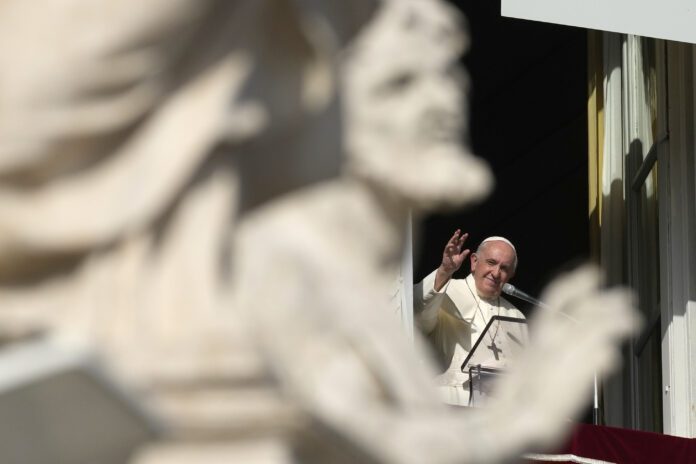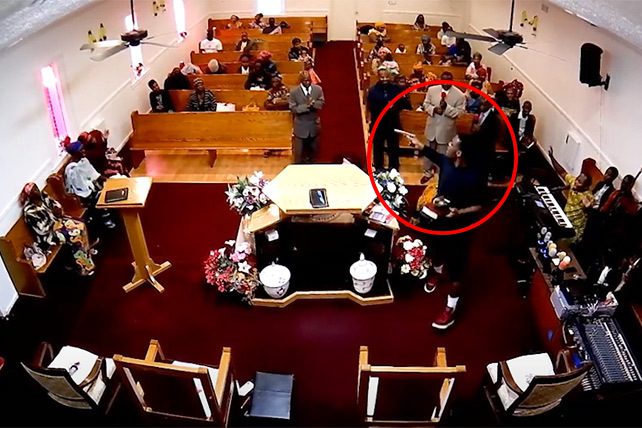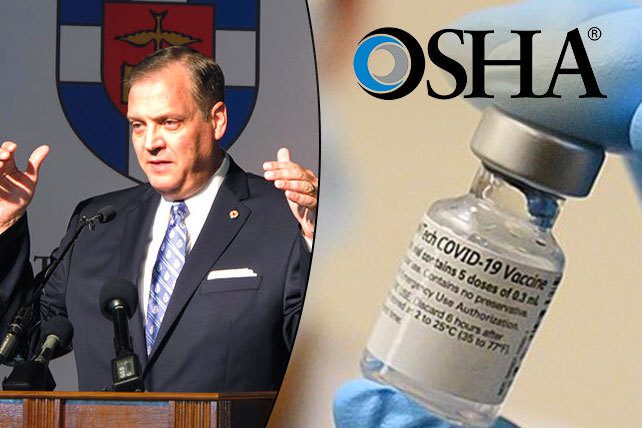For Christians, Advent is a season of preparation and waiting. Children, too, are eager to celebrate the birth of Jesus. Advent prayer stations are a great way to help kids focus on the real meaning of the Christmas season.
My church uses Advent prayer stations on the first Sunday of Advent. But you can use them any time. The stations offer opportunities to engage, reflect and meditate on this period of expectation. Plus, they work well in Sunday school as well as children’s church.
Four ideas for interactive Advent prayer stations are provided below. Use them to prepare children’s hearts and minds to welcome Jesus at Christmas and all year long. The interactive stations are meant to be intergenerational. Some are specifically designed for ages 2 to 4. You can view more photos of the stations here.
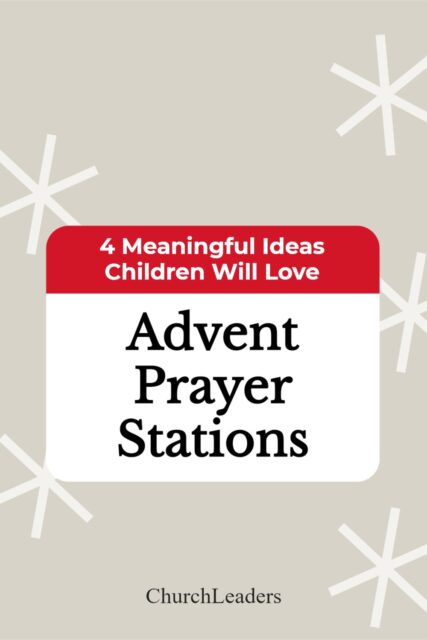
1. Notice Advent Trimmings
Materials: Branches, Christmas Lights, Glass Ornaments, Basket, Strips of Paper, Markers, Advent Painting

In this season filled with trimmings and decorations, how might all these things remind you of God’s decorative presence in your life? How may God want to “trim” your life this season?
If you’d like, in a few words, write this on the paper. Place it in the ornament to trim the church tree or yours at home.
Briefly allow this to be part of you now … invite God to enrich your faith journey.
2. Listen for Advent Sounds
Materials: Musical Scores, Table
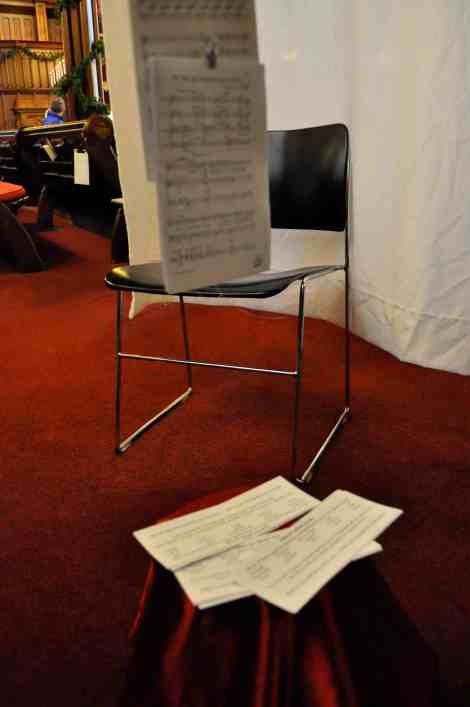
Which of these names for Jesus are most significant to you in this season, and why?
Emmanuel, Dayspring, Newborn King, Light, Gift, King of Kings, Lamb, Messiah, Prince of Peace, Rose, Savior, the Child, Baby, Brother
Pray to invite Jesus to be present with you as you hear the many carols of the season, wherever you experience them.
Reflect on the significance of this now … invite God to broaden your faith journey.
3. Watch Advent Lights
Materials: Picture of Balloons, Tealight Candles, Matches, Table

Where will I find hope, offer hope.
There are few things more fragile than an embryo of hope
given its chance of life only by those who say ‘yes’ to its promise
like the prophets who said yes to God’s urging,
Mary who said yes to an angel
and Joseph who said yes to his Mary,
like the people of faith through all of time who have said yes to the promise of love,
and as we sit by the side of our wall
—whatever that wall might be—
surrounded by the rubble and rubbish of broken dreams and lives,
what faith does it take to imagine an embryo of hope being brought to life here?
What ‘yes’ are you able to say
for it be born in our world?
Feel free to light a candle. Set it on a balloon as a sign of the hope you desire to offer another this season. Picture how someone will notice that light of hope.
Take time to let this settle into you now … invite God to enhance your faith journey.
4. Advent Prayer Stations for Toddlers
Activity one: Many people were at the birth of Jesus Christ. Look through the books and hear the story through different eyes.
Materials: A variety of children’s books on the birth of Christ, such as Bright Christmas : An Angel Remembers by Andrew Clements and Kate Kiesler, The Stone: A Persian Legend of the Magi by Dianne Hofmeyr, The Greatest Shepherd of All: A Really Woolly Christmas Story by Holly Gerth and Rosemary Harris, The Shepherd’s Christmas Story by Dandi Daley Mackall and Dominic Catalano, Mary’s First Christmas by Walter Wangerin, Spirit Child: A Story of the Nativity (Aztec) by J. Bierhorst and B Cooney

Activity two: Nativity is about the birth of Jesus. Who was at the birth of Jesus? What happened? Use the costumes to interact with the story. Imagine yourself as an animal in the barn, a wise person, an animal or an angel. How did they feel? What did they see?
Materials: Nativity Backdrop, a Manger, Dolls (for Jesus), Costumes (animals, angels, shepherds, magi)

Activity three: Today is the first Sunday of Advent. Advent is a time when we wait for Christmas, when Jesus was born. Children all over the world count down the 24 days until Christmas using an Advent calendar. Make an Advent Calendar:
- Take a tree bubble wrap.
- Write 1 through 24 on each circle sticker.
- Stick a circle sticker in order on each bubble.
- Hang it in your house. Each day, pop a bubble.
Materials: Bubble wrap cut in the shape of a tree, Circle stickers, Markers













